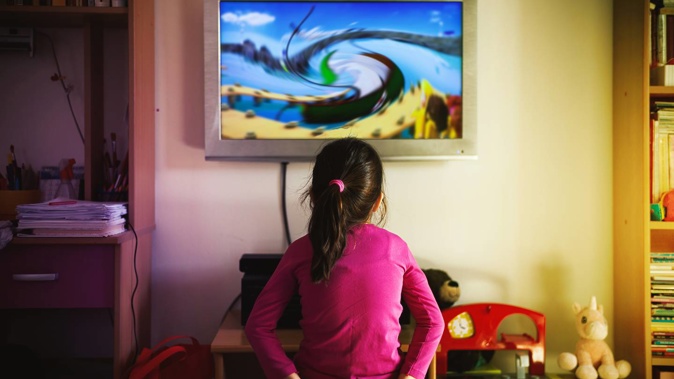
Our grandparents always told us we would get square eyes if we watched too much television.
Now, a University of Otago study — the Next Generation Study — has found excessive television viewing as a child can lead to a higher risk of tobacco use and gambling disorders in adulthood.
Researchers used unique follow-up data from the Dunedin Multidisciplinary Health and Development Study to investigate how television viewing in childhood was related to the risk of having a substance use disorder or disordered gambling in adulthood.
Study author Dr Helena McAnally said it indicated excessive leisure time television viewing between the age of 5 and 15, might be a risk factor for the development of later disorders.
“People often talk of television viewing as an addiction.
“This research indicates that, for some people, television viewing may be an early expression of an addictive disorder or may lead to later substance-related and other addictive disorders.”
Spending excessive time watching television during childhood and adolescence was associated with a higher risk of alcohol, tobacco, cannabis disorders and disordered gambling in adulthood, McAnally said.
For tobacco and gambling, these associations were independent of other potential influences on these outcomes such as sex, socioeconomic status and measures of childhood self-control.
Co-author of the study Professor Bob Hancox said excessive television viewing in childhood and adolescence had previously been associated with a range of poorer adult health and wellbeing outcomes.
“But to our knowledge, this research is among the first to assess how a common, but potentially addictive behaviour such as television viewing, is related to later substance disorder and disordered gambling.”
The study highlighted the potential need for guidance on digital health and wellbeing, he said.
“Public health agencies have put great effort into advocating for safer alcohol use and safe sexual practices.
“Similar campaigns could be used to advocate for safe screen use.”
The American Academy of Paediatrics recommended a daily average limit of two hours of screen time a day, was “a reasonable guide” for leisure-time screen time in children and adolescents, Hancox said.
Take your Radio, Podcasts and Music with you









